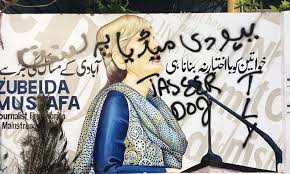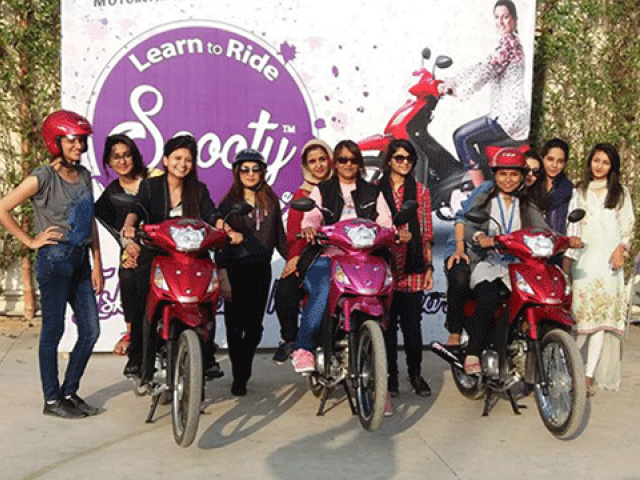Teresa Shook never considered herself much of an activist, or someone particularly versed in feminist theory. But when the results of the presidential election became clear, the retired attorney in Hawaii turned to Facebook and asked: What if women marched on Washington around Inauguration Day en masse?
She asked her online friends how to create an event page, and then started one for the march she was hoping would happen.
By the time she went to bed, 40 women responded that they were in.
When she woke up, that number had exploded to 10,000.
Now, more than 100,000 people have registered their plans to attend the Women’s March on Washington in what is expected to be the largest demonstration linked to Donald Trump’s inauguration and a focal point for activists on the left who have been energized in opposing his agenda.
Planning for the Jan. 21 march got off to a rocky start. Controversy initially flared over the name of the march, and whether it was inclusive enough of minorities, particularly African Americans, who have felt excluded from many mainstream feminist movements.
Organizers say plans are on track, after securing a permit from D.C. police to gather 200,000 people near the Capitol at Independence Avenue and Third Street SW on the morning after Inauguration Day. Exactly how big the march will be has yet to be determined, with organizers scrambling to pull together the rest of the necessary permits and raise the $1 million to $2 million necessary to pull off a march triggered by Shook’s Facebook venting.
The march has become a catch-all for a host of liberal causes, from immigrant rights to police killings of African Americans. But at its heart is the demand for equal rights for women after an election that saw the defeat of Democrat Hillary Clinton, the first female presidential nominee of a major party.
“We plan to make a bold and clear statement to this country on the national and local level that we will not be silent and we will not let anyone roll back the rights we have fought and struggled to get,” said Tamika Mallory, a veteran organizer and gun-control advocate who is one of the march’s main organizers.
More than 150,000 women and men have responded on the march’s Facebook page that they plan on attending. At least 1,000 buses are headed to Washington for the march through Rally, a website that organizes buses to protests. Dozens of groups, including Planned Parenthood and the antiwar CodePink, have signed on as partners.
Organizers insist the march is not anti-Trump, even as many of the groups that have latched on to it fiercely oppose his agenda.
“Donald Trump’s election has triggered a lot of women to be more involved than they ordinarily would have been, which is ironic, because a lot of us thought a Hillary presidency would motivate women,” said Dana Brown, executive director of the Pennsylvania Center for Women and Politics at Chatham University in Pittsburgh. “A lot of women seem to be saying, ‘This is my time. I’m not going to be silent anymore.’”
Trump Inaugural Committee spokesman Boris Epshteyn defended the president-elect’s popularity among women in an interview on CNN. While Trump did not receive the majority of women’s votes, he got an “overwhelming” number of them, Epshteyn said.
“We’re here to hear their concerns,” he said. “We welcome them to our side as well.”
That all this could grow out of a dashed-off post from her perch nearly 5,000 miles from Washington is amazing to Shook, who has booked her ticket and plans to be in the capital on Jan. 21.
“I guess in my heart of hearts I wanted it to happen, but I didn’t really think it would’ve ever gone viral,” said Shook, who is in her 60s. “I don’t even know how to go viral.”
Unsure of how to proceed in those initial few days, she said she enlisted the help of the first few women who messaged her to volunteer, some of whom independently also had an idea for a march. But as the march grew in prominence, it got caught up in a broader conversation in liberal circles about race and leadership, with activists and others criticizing that initial planning group for its racial makeup: Shook and all the women she tapped to help in the march’s nascent stages are white, she said.
Some also took issue with the name Shook had proposed, the Million Woman March, which was the name of a 1997 gathering of hundreds of thousands of black women in Philadelphia. The racial concerns set off a heated conversation on the group’s main Facebook page, with some African American women especially taking umbrage.
For her part, Shook said her aim was not to co-opt any other movement. It was just an idea that took hold after the victory of a president-elect caught on tape boasting of grabbing women’s private parts and the defeat of a woman who seemed to her much more qualified for the job. She said she had no idea of the race of the women she first contacted; in fact, she said, most had an image of Clinton as their Facebook profile photo.
Complicating matters, it became apparent that the march probably could not start at the Lincoln Memorial as Shook had proposed, since the inaugural committee has dibs on that space.
Overwhelmed and under pressure, the original organizers eventually handed the reins to a diverse group of veteran female activists from New York: Mallory, the gun-control activist; Linda Sarsour, executive director of the Arab American Association of New York; Carmen Perez, head of the Gathering for Justice, a criminal-justice-reform group; and Bob Bland, a fashion entrepreneur.
Together, they settled on a new name: The Women’s March on Washington, a nod to the 1963 demonstration that was a cornerstone of the civil rights movement. They even received the blessing of the Rev. Martin Luther King Jr.’s youngest daughter, Bernice King.
In the District, Janaye Ingram, the former executive director of Al Sharpton’s National Action Network, has been working to secure permits and hash out logistics for the march, including ensuring there is a proper sound equipment and sufficient portable toilets.
People traveling to attend the march seem less concerned with behind-the-scenes politics than the chance to call for more family-friendly government policies, equal pay for women or reproductive rights. Some say they simply want to stand against the crass way Trump has spoken about women.
Lindsey Shriver, a 27-year-old former pastry chef who is an at-home mom in Ohio, said she was offended this election cycle by Trump’s rhetoric, which she characterized as “hateful and misogynistic.” She also wants to highlight the need for paid family leave and affordable child care.
“I realized that being a feminist in my own personal life wasn’t going to be enough for my daughters,” Shriver said.
Caroline Rule, 57, a lawyer living in Manhattan, says she will attend with her 15-year-old daughter. While she agrees with the pro-women message behind the march, she said she would probably participate in any march that pushed against Trump’s messages.
“I absolutely despise Donald Trump and everything he stands for,” she said.
Feminist icon Gloria Steinem has recently signed on as a march co-sponsor, and celebrities including Amy Schumer, Samantha Bee and Jessica Chastain say they plan to attend.
Feminist scholars say the march reflects an emerging view of feminism: one that is less defined by reproductive issues, such as birth control and abortion, and more by how the challenges faced by women intersect with those encountered by African Americans, the LGBT community and immigrants.
Still, reproductive rights will be a large part of the march, with Planned Parenthood and NARAL Pro-Choice America as key partners.
Hahrie Han, a political science professor at the University of California at Santa Barbara specializing in political organizations and political engagement, said it’s not all that surprising that individual women instead of an established organization founded this march. Established organizations all come with at least some political baggage.
“The challenge with having one organization brand it as its own is that each organization has its own image that draws some people and pushes others back away,” she said.








